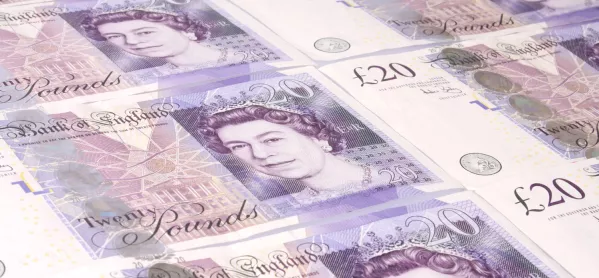
- Home
- Is the £1bn catch-up more about headlines than pupils?
Is the £1bn catch-up more about headlines than pupils?

One billion pounds. It’s a nice round number, isn’t it? And a big one.
There’s no doubt that the government has just pledged a significant extra sum for schools. And last night three of the four main teaching unions were quick to welcome this “considerable” investment to help pupils recover the many months of learning lost to the coronavirus pandemic.
But the announcement also raises some immediate concerns. The first is that number - it feels just a bit too neat.
There’s absolutely no doubt that a billion makes a good headline. But if your main focus was to actually do what was needed to recover that lost learning, then wouldn’t you start at the other end?
Coronavirus: £1bn ‘Covid catch-up plan’ unveiled
Comment: PM’s schools plan had ‘absolutely no detail whatsoever’
‘Massive’: Johnson promises a ‘huge summer of catch up’ for pupils
Wouldn’t you try to work out in detail how much learning had been lost - and it will vary according to circumstance - and then how much tutoring was needed to make it up, and cost it from there?
Maybe that did happen. Maybe the government has looked at pupils’ need, done its sums and come up with a bill that just happened to be exactly £1 billion.
Lack of consultation on the coronavirus schools catch-up scheme
But maybe not. Maybe ministers had something else in mind, some other motivation, when they settled on that figure.
Suspicions grow when you consider the last-minute “corrections” that the Department for Education made to its press release last night. First of the all, the National Tutoring Programme was getting £300 million in a “multi-year” deal, then it was £350 million over a single year.
Meanwhile, the other £700 million to be shared across early years, schools and 16-19 providers over 2020-21 dropped, without explanation, to £650 million. And suddenly early years and 16-19 weren’t getting any of it.
These weren’t details - they were big changes with huge implications for meeting the need that is out there. So were they just the product of some internal office cock-up and confusion? Or are they a symptom of a plan that has been rushed through since the prime minister’s unexpected announcement of a “a massive catch-up operation” the previous week?
Do these changes suggest that the key motivation has not been to ensure that a particular need has been met, but to get the government out of a tight spot on schools with a nice figure and some much-needed positive media coverage?
It’s a pretty cynical view to take. And it would be much too cynical to suggest this isn’t about helping pupils at all. It obviously is. But wouldn’t it be more effective if it hadn’t been the tail wagging the dog?
What seems really incredible about this latest announcement is that yet again the government has failed to consult headteachers about it in advance - the very people who will have to make it work. The general secretary of that most moderate and consensual of unions - the Association of School and College Leaders - has been left shaking his head in frustration at once again having to “guess” and “piece together the detail”.
And this comes after the embarrassing U-turn over a rushed-out plan to reopen schools, which could have been avoided if ministers had talked to heads first, allowing them to explain that there was no way it could work.
The lack of consultation over the catch-up programme seemed shocking when Mr Johnson first unveiled his detail-free “huge” pledge last Wednesday. But the fact that heads had still not been consulted more than a week later by the time the details were finalised last night seems reckless.
It’s not just that the funding figure has been seemingly plucked out of the air. There are also big questions as to how far it will go. The services from the National Tutoring Programme will be heavily subsidised for schools - but they are not free, with a rate of £12 an hour suggested as an example.
It is true that schools have already been pledged a significant £7 billion extra funding injection by the Johnson government. But that is only enough to make up the cuts of the previous decade. Schools are not awash with cash and were facing rising costs even before the coronavirus arrived, so that £650,000 could disappear very quickly.
It’s not that today’s announcement isn’t good news. New money is new money and this is a significant sum. And the tutoring programme cannot be dismissed as a flash in pan. The organisations behind it have already researched and piloted the idea (although schools are already asking why the money cannot go directly to them).
But ministers cannot consider this as job done as far as addressing the learning lost due to the coronavirus. It can only be the start.
Register with Tes and you can read five free articles every month, plus you'll have access to our range of award-winning newsletters.
Keep reading for just £4.90 per month
You've reached your limit of free articles this month. Subscribe for £4.90 per month for three months and get:
- Unlimited access to all Tes magazine content
- Exclusive subscriber-only stories
- Award-winning email newsletters
You've reached your limit of free articles this month. Subscribe for £4.90 per month for three months and get:
- Unlimited access to all Tes magazine content
- Exclusive subscriber-only stories
- Award-winning email newsletters



